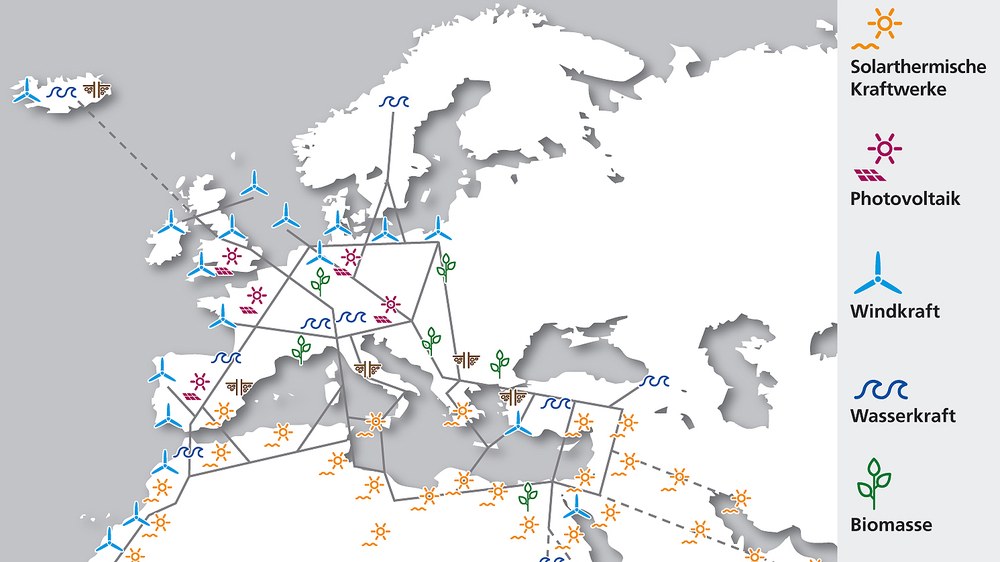Energy systems analysis

Energy policy and decisions made in the energy sector generally have far-reaching and long-lasting consequences. DLR's energy systems analysis helps to identify the opportunities represented by new technologies at an early stage and to reduce the negative effects of today's actions on the environment and on society. In this context, DLR is also investigating how new technologies can contribute to a future flexible energy system based on renewable resources.
Knowledge of systems analysis is an important prerequisite for operating and designing energy systems. To this end, DLR develops and uses a range of methods and tools for system analysis and technology assessment. These are specifically tailored to issues related to energy supply. This knowledge can be used in research, industry and politics to make decisions about energy, environmental and research policy framework conditions.
DLR's systems analysis research combines the economic analysis of the entire energy system at regional, national and European level with economic and technology-oriented studies and agent modelling. In doing so, the researchers take advantage of the many synergies that exist with other research areas at DLR. Examples of this are the analysis of the effects of electromobility on the transport sector or the use of remote sensing data acquired by satellite.
The research work is primarily carried out at the DLR Institute of Networked Energy Systems, but also in cooperation with other DLR institutes such as the Institute of Solar Research.
Energy Meteorology
Knowledge of the potential of renewable energies is very important for a future energy system with a high proportion of renewable energy. To this end, DLR uses data from satellites and ground-based systems. They provide information about the nature of land surfaces, how intensively the Sun shines or how strongly the wind blows. The high spectral and temporal resolution of these data enable DLR to develop high-quality datasets. Researchers use these data and the knowledge they provide to evaluate and predict the system behaviour of renewable energies and, for example, to control power plants. Short-term forecasts of wind strength and solar radiation intensity are also particularly important for the operation of power grids. DLR research oversees the development and implementation of new methods for this.
Technological assessment
The economic, ecological and sociological assessment of energy technologies and systems allows DLR to make recommendations for action. At the same time, technological assessment provides necessary information for modelling future energy systems and analysing possible scenarios. Assessment methods based on multiple criteria and life-cycle analyses lie within this research area. Questions of technological acceptance, such as socio-cultural acceptance, also play a role.
Scenario analysis
Scenario analyses help researchers develop concepts for a future energy system consisting of a sustainable energy supply based on renewable energies. During these analyses, DLR experts take into account technical, economic and ecological factors and boundary conditions as well as the availability of renewable energies and supply structures. They also evaluate the costs of the various scenarios.
Power grid and system modelling at various scales
The development of models, methods and algorithms for the simulation and optimisation of power grids and energy systems are an important part of energy systems analysis. This involves mapping grids at different temporal and spatial scales. The process supports the optimisation of grid operation and expansion planning. The effects on the overall system of using a high proportion of renewable energies are also being investigated. DLR develops open source and open data solutions to increase the transparency of energy models.
Regulatory tools
Economic and political aspects also play an important role in the restructuring of the energy system. DLR researchers are therefore investigating and developing strategies for market introduction and business models for new technologies and structures in the energy sector. These interact closely with funding mechanisms and other political instruments.
